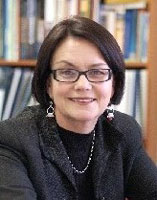According to a study conducted last year for the Namibian regulator cost-based interconnection costs of efficient operators are lower than 25 cents. The decision by South Africa's service providers to lower their interconnection rates in the coming weeks has been welcomed, but the size of the proposed cut has drawn some sharp criticism.

Alison Gillwald
While in South Africa by law the regulator is required to conduct complex and lengthy studies before it can set the interconnection rate, in Namibia the regulator was able to move swiftly on the basis of benchmarking studies to reduce the interconnection rate between its operators by nearly 50%.
This is according to Alison Gillwald, director of research ICT Africa and convenor of the UCT course Connectivity and Convergence: Alternative Regulatory Strategies for Telecommunications, a programme designed to provide alternative regulatory strategies for resource constrained developing countries.
The rate is what telecommunication companies charge each other when a call from another network is terminated on their own network. ICASA turned down a proposed voluntary reduction in interconnection rates received from the three operators on 25 January 2010, which was offered on condition the regulator did not try to regulate the price further until 2013. This condition was dropped late last week by the operators. ICASA subsequently accepted the cut but said this would not stop them from continuing with their investigations in what cost-based interconnection charges should be.
Gillwald said that while it was understood that operators needed time to adjust their business models to cost-based interconnection, the cuts proposed were way off the globally benchmarked price of an efficient operator. “The reductions proposed by the networks are not nearly cost based prices and threaten to continue to inhibit competition in the market and constrain the reduction of end-user prices in South Africa, which are high by global standards,” she said.
“It is thus critical that not just ICASA, but policy-makers and key decision-makers entrusted with resolving these issues are equipped to deal with these growing demands in the policy and regulatory space, more often than not with somewhat limited resources.”
She said learning from African neighbours and other emergent markets can help address these challenges. The UCT GSB programme Connectivity and Convergence looks at the African context, and the particular challenges facing the continent.
“In South Africa and many other emergent markets, policy-makers and regulators have emulated the regulation employed in mature competitive economies with resourced regulators to address telecom and ICT reform challenges. This programme examines these regulatory practices to understand why they are seldom successfully implemented in developing country contexts and proposes less resource intensive alternative strategies,” she added.
























